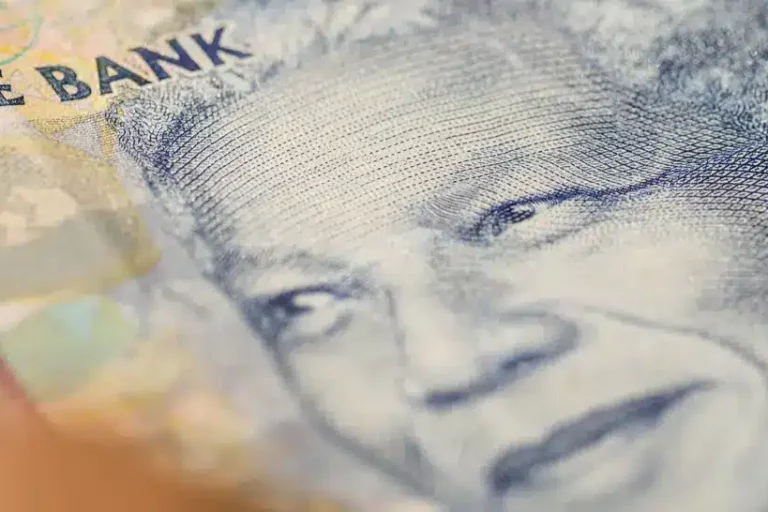Sa Ahead Of The World For Once – But It’S Nothing To Be Proud Of

South Africa has the unenviable honour of being ahead of the world in three key ways. Much of Europe, the UK and North America are facing a dark, cold winter without reliable energy, the UK is coming to terms with shifts in power of another kind in their new Cabinet, and rising populism is shaking the western world’s democratic foundations. None of these problems are new to South Africans.
The unthinkable hasn’t yet happened in the UK, Europe and much of North America. A confluence of factors means that businesses and households are facing energy shortages likely to cause cuts in power. In echoes of the public health crisis we’ve lived through, the European Commission President Ursula von der Leyen has warned that consumers will need to help ‘flatten the curve’ of energy demand during peak hours. And Shell CEO Ben van Beurden has warned that this crisis won’t quickly resolve: rather like we have endured ourselves, Europeans must brace themselves for at least “a number of winters” of rationed power and a mad scramble for alternative supplies. Those alternatives may take the world backwards in its quest to rely on greener, renewable energy. Coal plants are being fired back up and nuclear plants are on standby in countries like Germany to alleviate grid pressure.
Here, South Africans are undeniably ahead of the curve even if it’s being flattened by the blunt enforcement of stage 6 loadshedding. We have begrudgingly come to co-exist with the fragility of our power supply, and private sector solutions have helped us adapted our homes and businesses to our cold reality.
We know we are a resilient people but it’s only when you look a bit closer at some of what’s been developed over the last 17 years of loadshedding does our tenacity and determination to ‘moer aan’ really become clear.
The mobile phone app Eskom Se Push, started by tech entrepreneurs gives an essential sense of control against a chaotic backdrop. Delivering instantly updated schedules and stages bespoke to your city and area, the app allows us to work around the crumbling grid infrastructure. And in evidence of business’ determination to run efficiently in a constrained environment, South Africa’s biggest retailer, Shoprite, now runs solar powered systems on over 1 000 of their delivery trucks. As a result, their refrigeration systems, tail lifts and surveillance units are now all powered by the sun instead of diesel. We need government to cut red-tape and speed up compliant new builds, and fast.
Looming power cuts make the appointment of Jacob Rees-Mogg, the UK’s new Secretary of State for Business and Energy, rather perplexing. Rees-Mogg has publicly committed to squeezing “every last cubic inch of gas” from the North Sea, with an emphasis on fracking and the rejection of windfarms in favour of fossil fuels instead.
South Africans are also no stranger to Cabinet appointments that confuse more than inspire. Here at home, our Minister of Mineral Resources and Energy has considered new coal plants a critical part of the country’s energy mix. Additional coal builds were included in the Integrated Resource Plan to take us to 2030, despite South Africa’s signing of the Paris Agreement on Climate Change in terms of which we’re committed to reducing emissions from coal.
And when one adds South Africa’s experience of entrenching populism to the political uncertainty and unstable power supply, we have a crystal clear look into the world’s future.
People want a sense of control over their lives. They want to trust and believe in the people professing to lead them. Today, party principles are being swept aside by the power of political personalities. We’ve lived with these consequences for years. Even before the populist group EFF broke away from the ANC, over 60 people were killed and over 100 000 displaced during xenophobic attacks across the country in 2008. In July 2022 the UN reported that South Africa was ‘on the precipice of explosive xenophobic violence’ and that discrimination against foreigners has been institutionalised.
The election protests in France earlier this year are revealing. From both the populist right and left, we saw how violently and quickly a stable state can be rocked. Anti-immigration and furiously xenophobic sentiment, the widening gulf between rich and poor, demands for higher taxes on the rich and lower taxes for the poor, all combine into growing mobs of people completely disillusioned with globalisation and democracy, on both sides of the spectrum.
But we can turn South Africa’s track record on its head.
We can start with government opening up Eskom’s monopoly to fair competition across the public and private sector to keep the lights on and industry pumping. At the very least it should dispense with localisation requirements, buy from independent power producers, and stabilise its debt on the most favourable terms possible.
We then need a growth-enabling and business-welcoming visa regime. This should mean that, no matter where you come from, if you have the skills, plan and passion to grow business in South Africa and create employment, South Africa should not only warmly but efficiently welcome and facilitate their establishment and contribution to a truly inclusive economy.
All of this would be made possible by a fully digitalised civil service that could help spur our economy into action by making procedural registrations and compliance a breeze. Think of the creative and entrepreneurial space we could open up if we didn’t waste millions of annual hours in queues for driver’s licenses, at Home Affairs and querying municipal rates and taxes. These digitised processes are possible – some of which are being piloted – provided government, business and the public can work together constructively.
The last decade has shown us that life can and does go on, even in the dark. But it doesn’t look pretty, it doesn’t feel good or easy, it’s massively stressful, and every day of loadshedding wipes billions from our GDP. Let’s ensure that in the next decade, South Africa is a step ahead for the right reasons.
Author: Adam Craker, CEO of IQbusiness, South Africa’s largest independent BEE level 1 technology and management consultancy
INSIGHTS





